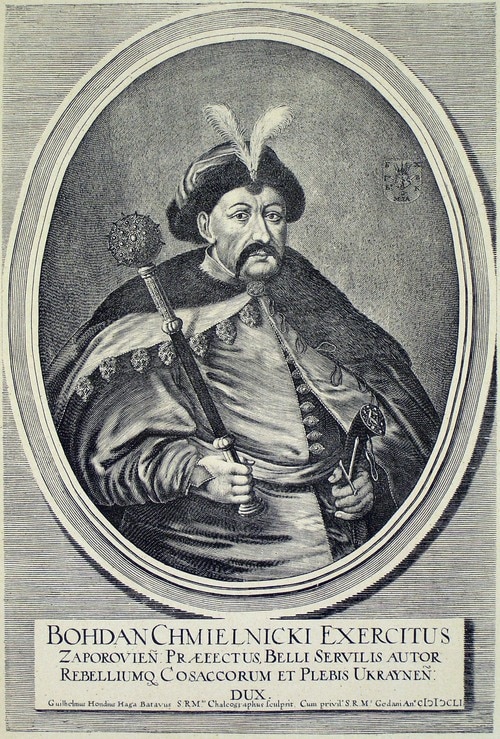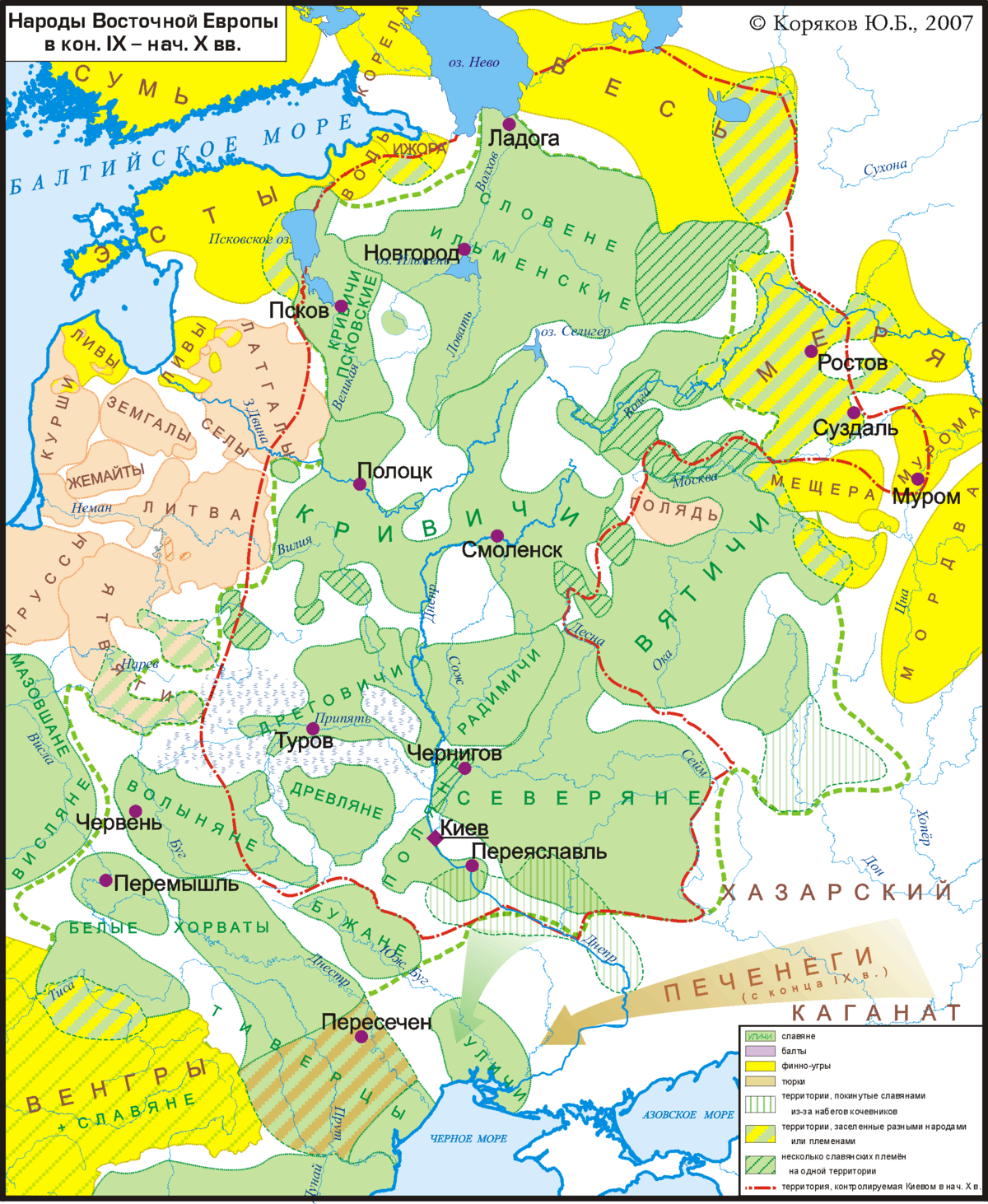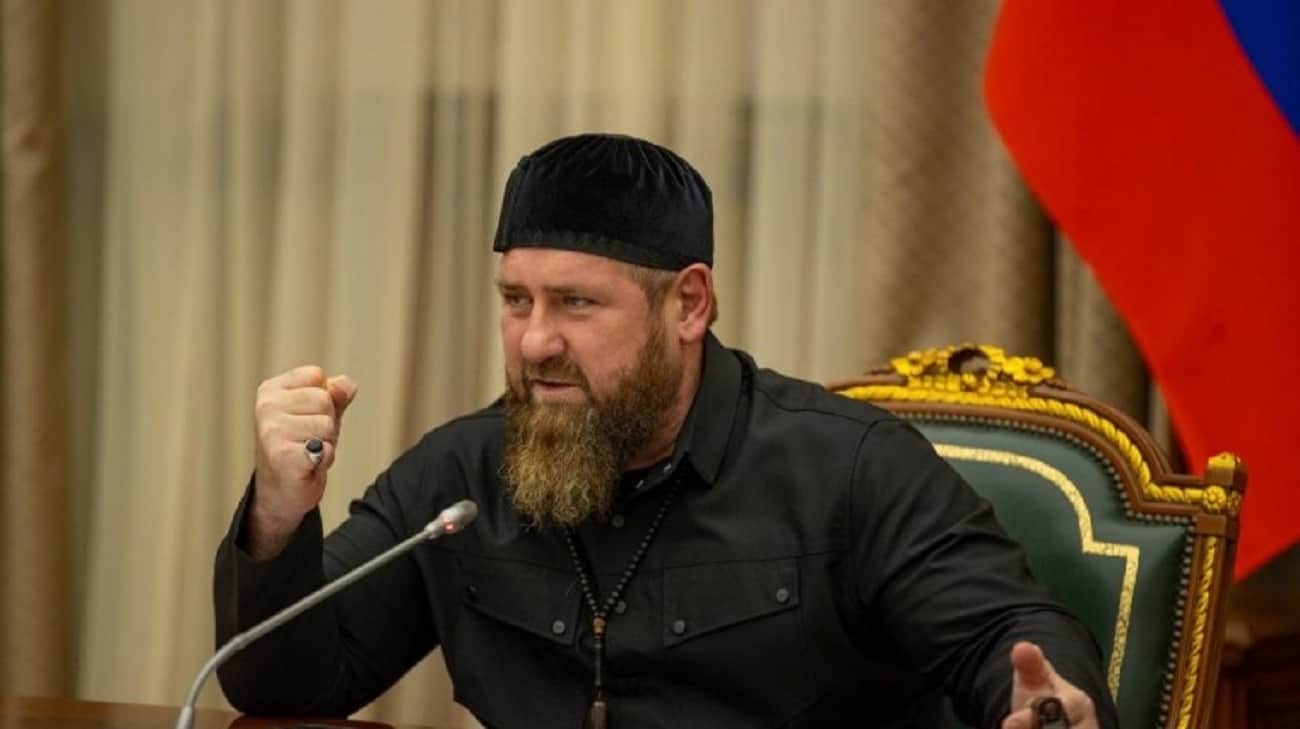Litwin
Platinum Member
FINALLY !!! 
PS Ugandas dictator Idi Amin was also known as "the last king of Scotland", there was even a movie with that name in the 2000s....
Addressing additional arguments:
 But Muscovite Rulers were of the same dynasty as Russian Rulers - House of Rurik?
But Muscovite Rulers were of the same dynasty as Russian Rulers - House of Rurik? 
1. This logic suggests that if the Danish King Rules in Norway he can call Norway - Denmark now? Which happened in history, on many occasions. Those Russian rulers also ruled in Georgia and Bulgaria... so according to this logic let's call Georgia and Bulgaria Russia too? Logic is flawed
2. House of Rurik lost power BEFORE they rebranded themselves. It was the house of Romanov who stole the identity.
3. House of Rurik continued to rule in the Kingdom of Rus' after the collapse of Kyiv in 1240, with the capital in Lviv/Glaich
4. Those Ruriks ruling in Vladimir-Suzdal Province (Moscow didn't exist yet) were far descendants that had no chance of power inheritance in Kyiv.
 But why do we see the label "Russia" on some maps prior 1721?
But why do we see the label "Russia" on some maps prior 1721? 
'Russia' label appears over territories of Muscovia before 1721. We can see it on the map of 1720 by Homann, map of 1721 by Moll, and 1595 by Mercator.
1. The name on the map is archaic - it loosely shows what used to be territories controlled by Rus'. It is not used in a geopolitical sense to define the name of the state. You can also see "Russia" and "Asia" spelled with one font size on 1595 Mercator map.
2. Term "of Russian" prior 20th century meant religious affiliation to Greek Orthodoxy. And was applicable to people that adopted Christiany from Kyiv. People living in Moscovia were of Russian faith but no records existing proving they identified themselves as Ruthenean identity/nationality.
3. Due to a number of reasons including point #2 and the challenges mapmakers faced back then, especially foreign mapmakers with language barriers - there are lots of human errors. You have to look at the trends, no single map will be accurate.
4. On Mercator map we can see the label "Russia" next to Lviv (Leopolis) actually in the same font size as Moscovia. So something's not right, are there two Russias now? Well no, one is defining a nation/region, while another defines archaic territories that used to be controlled by Rus' in the past - as per point #1
5. On the map of 1721 - a good example to prove point #1 - we can see labels 'Russia' and 'Tartaria' are both used archaically, meaning not as the name of the state.
 But Rus' came from Novgorod, not Kyiv?
But Rus' came from Novgorod, not Kyiv? 
This is a deliberately created Moscow lie so to give Kyiv less credibility.
1. Archaeological evidence indicates that Novgorod begins only in the first half of the 10th century. Meaning it cannot precede Kyiv in anything. Novgorod being capital of Rus is a deliberately created Moscow lie.
 www.bournemouth.ac.uk
www.bournemouth.ac.uk
2. Novgorod and Moscovia are completely different. Moscovia genocided Novgorodian ethnos, and assimilated them.

 en.wikipedia.org
en.wikipedia.org
3. Kyiv was the only capital of Rus'. Novogord paid tribute to it. Based on Chronicles and works of many scientists: Priselkov, Tolochko, Nasonov, Rybakov, Grushevskiy. Novgorod wasn't even a core part of Rus'.Here's just one quote from Laurentian text "Tale of Bygone Years" - year 1175 to prove it: "This has already happened, our ruler was killed, but he has no children [in Vladimir], his son is in Novgorod, and his brothers are in Rus'."
 But Ukraine means 'borderlands"?
But Ukraine means 'borderlands"? 
This is a deliberately created Moscow lie so to dismiss Ukraine as a nation.
No one would name/call themselves as border people, not to mention the word 'Ukraine' as applied to the nation appears before it's anyone's 'border'.
Here's Duke of Ukrainian People in 1651 - "Plebis Ukraynen Dux"

 steamcommunity.com
The word 'Krai' has two meanings - edge and lands. The definitive meaning of Ukraine is unknown!
steamcommunity.com
The word 'Krai' has two meanings - edge and lands. The definitive meaning of Ukraine is unknown!
 Comment from @WhiteDeVil3 I'd like to pin
Comment from @WhiteDeVil3 I'd like to pin
I've spent a significant portion of my time during Uni studying the origins of Kievan Rus, Ruthenia, Poland, Muscovy, Novgorod (+ Baltic and Scandinavian countries) etc.
and I recall - more than a DECADE ago - that this conclusion of modern Russia being heir and continuation of Muscovian mindset and practice of subjugating your people through terror and propaganda (copied from Khanates who did the same to Muscovy) -- was WELL established.
There are many books on this subject, but this did not seem to be "mainstream thought" when you spoke on Russia's origins, even in the academic circles of the city I'm from
(and not only there of course).
I remember that this struck me as very odd - why is this not common knowledge if so many people from different involved countries wrote so much on this subject?
That's when I began to realize that there's history and then there's what certain governments want you to think when a certain question is asked.
I hope that this video reaches a spectacular amount of views and that people will realize that there is much, much more to the complex history of all the lands from the Oder to Volga, from the Carpathian mountains up to the Baltic Sea.
Had to cut them out as video was getting too long. Happy to address any other questions. Thank you!

PS Ugandas dictator Idi Amin was also known as "the last king of Scotland", there was even a movie with that name in the 2000s....
Addressing additional arguments:
1. This logic suggests that if the Danish King Rules in Norway he can call Norway - Denmark now? Which happened in history, on many occasions. Those Russian rulers also ruled in Georgia and Bulgaria... so according to this logic let's call Georgia and Bulgaria Russia too? Logic is flawed
2. House of Rurik lost power BEFORE they rebranded themselves. It was the house of Romanov who stole the identity.
3. House of Rurik continued to rule in the Kingdom of Rus' after the collapse of Kyiv in 1240, with the capital in Lviv/Glaich
4. Those Ruriks ruling in Vladimir-Suzdal Province (Moscow didn't exist yet) were far descendants that had no chance of power inheritance in Kyiv.
'Russia' label appears over territories of Muscovia before 1721. We can see it on the map of 1720 by Homann, map of 1721 by Moll, and 1595 by Mercator.
1. The name on the map is archaic - it loosely shows what used to be territories controlled by Rus'. It is not used in a geopolitical sense to define the name of the state. You can also see "Russia" and "Asia" spelled with one font size on 1595 Mercator map.
2. Term "of Russian" prior 20th century meant religious affiliation to Greek Orthodoxy. And was applicable to people that adopted Christiany from Kyiv. People living in Moscovia were of Russian faith but no records existing proving they identified themselves as Ruthenean identity/nationality.
3. Due to a number of reasons including point #2 and the challenges mapmakers faced back then, especially foreign mapmakers with language barriers - there are lots of human errors. You have to look at the trends, no single map will be accurate.
4. On Mercator map we can see the label "Russia" next to Lviv (Leopolis) actually in the same font size as Moscovia. So something's not right, are there two Russias now? Well no, one is defining a nation/region, while another defines archaic territories that used to be controlled by Rus' in the past - as per point #1
5. On the map of 1721 - a good example to prove point #1 - we can see labels 'Russia' and 'Tartaria' are both used archaically, meaning not as the name of the state.
This is a deliberately created Moscow lie so to give Kyiv less credibility.
1. Archaeological evidence indicates that Novgorod begins only in the first half of the 10th century. Meaning it cannot precede Kyiv in anything. Novgorod being capital of Rus is a deliberately created Moscow lie.
Mapping the Forests of Medieval Novgorod | Bournemouth University
2. Novgorod and Moscovia are completely different. Moscovia genocided Novgorodian ethnos, and assimilated them.

Novgorod Republic - Wikipedia
3. Kyiv was the only capital of Rus'. Novogord paid tribute to it. Based on Chronicles and works of many scientists: Priselkov, Tolochko, Nasonov, Rybakov, Grushevskiy. Novgorod wasn't even a core part of Rus'.Here's just one quote from Laurentian text "Tale of Bygone Years" - year 1175 to prove it: "This has already happened, our ruler was killed, but he has no children [in Vladimir], his son is in Novgorod, and his brothers are in Rus'."
This is a deliberately created Moscow lie so to dismiss Ukraine as a nation.
No one would name/call themselves as border people, not to mention the word 'Ukraine' as applied to the nation appears before it's anyone's 'border'.
Here's Duke of Ukrainian People in 1651 - "Plebis Ukraynen Dux"

Steam Community :: :: Bohdan Chmielnicki Exercitus Zaporovien Pr. Electus. Belli Servilis autor Rebelliumo Cosaccorum et Plebis Ukrainen dux
Steam Community: Mount & Blade: With Fire and Sword.
I've spent a significant portion of my time during Uni studying the origins of Kievan Rus, Ruthenia, Poland, Muscovy, Novgorod (+ Baltic and Scandinavian countries) etc.
and I recall - more than a DECADE ago - that this conclusion of modern Russia being heir and continuation of Muscovian mindset and practice of subjugating your people through terror and propaganda (copied from Khanates who did the same to Muscovy) -- was WELL established.
There are many books on this subject, but this did not seem to be "mainstream thought" when you spoke on Russia's origins, even in the academic circles of the city I'm from
(and not only there of course).
I remember that this struck me as very odd - why is this not common knowledge if so many people from different involved countries wrote so much on this subject?
That's when I began to realize that there's history and then there's what certain governments want you to think when a certain question is asked.
I hope that this video reaches a spectacular amount of views and that people will realize that there is much, much more to the complex history of all the lands from the Oder to Volga, from the Carpathian mountains up to the Baltic Sea.
Had to cut them out as video was getting too long. Happy to address any other questions. Thank you!





